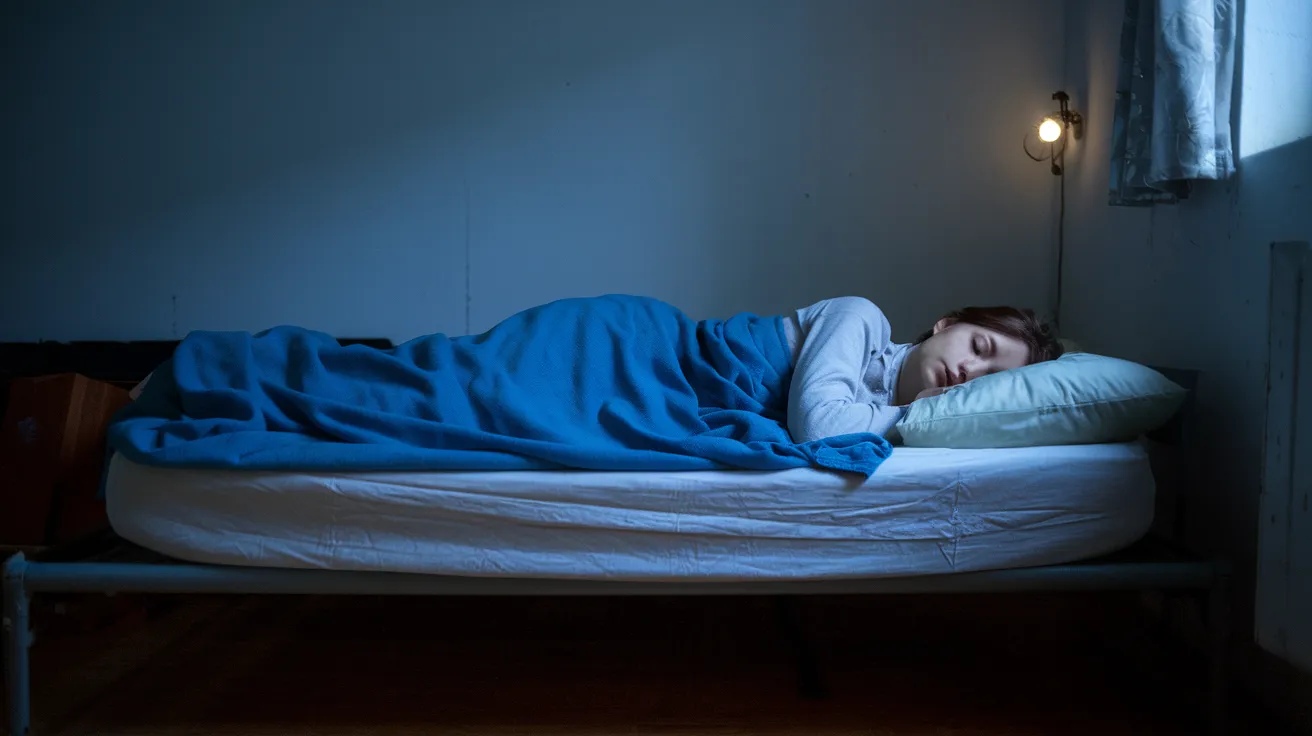We all know sleep matters – but how much? Research has linked quality sleep to everything from a stronger immune system to better weight management, sharper thinking, and even reduced risk of chronic conditions like diabetes and heart disease. It’s not just a luxury; it’s fundamental to feeling human.
So let’s cut through the noise and get to what actually works.
Creating the Perfect Sleep Environment
Your bedroom should be your sleep sanctuary – a place that signals to your body and mind that it’s time to power down.
Embrace the Darkness
Our bodies evolved to sleep when it’s dark. Even tiny amounts of light can throw off your natural sleep rhythms.
Blackout curtains changed my life, but a good sleep mask works wonders too. I resisted wearing one for years until a red-eye flight forced me to try one – now I won’t travel without it, and sometimes use it at home when the morning light creeps in too early.
🔮 Most sleep researchers agree
Your body temperature naturally drops as you drift off. A cooler room supports this process. I used to crank up the heat and pile on blankets, but switching to a cooler room with a warm comforter dramatically improved my sleep quality.
Silence is Golden (But White Noise is Silver)
Pure silence works for some lucky souls. For the rest of us dealing with noisy neighbors, traffic, or a snoring partner – white noise is a game-changer.
My favorite sleep hack? A basic box fan. It provides gentle background noise that masks sudden sounds and has the added benefit of keeping air circulating. If that’s not your thing, rainfall soundscapes or a proper white noise machine can work wonders.
The Relaxing Bedtime Routine
Most of us are guilty of doomscrolling until lights out. I certainly was. But that blue light from screens suppresses melatonin – the hormone that tells your brain it’s bedtime.
Try this instead: Set a “screens-off” alarm for 30-60 minutes before bed. Replace that time with something genuinely relaxing – a hot shower, light stretching, pleasure reading (actual books, not e-readers), or even just sitting quietly with a cup of herbal tea. After a week of this practice, you’ll notice the difference.
Establishing a Consistent Sleep Schedule

Your body craves rhythm. Going to bed and waking up at roughly the same time – even on weekends – helps regulate your internal clock.
Sleep Cycle Calculator
I fought this advice for years. Weekend sleep-ins felt like a well-earned reward. But when I finally committed to a consistent wake-up time (with maybe a 1-hour weekend grace period), something magical happened: I stopped needing an alarm clock altogether. My body learned when to feel tired and when to wake up naturally.
🔮 Sleep Schedule Tip
sleep-wake cycle over time.Mindful Eating and Drinking Habits
What goes into your body throughout the day affects what happens when your head hits the pillow.
The Caffeine Conundrum
Coffee isn’t just delicious – it’s a ritual for many of us. But caffeine has a half-life of 5-6 hours, meaning that afternoon espresso is still partly active at bedtime.
My compromise? I enjoy my coffee freely until noon, then switch to decaf or herbal alternatives. The occasional afternoon coffee happens, but I no longer wonder why I’m staring at the ceiling at 2 AM.
Say No to Nightcaps
That evening glass of wine might feel relaxing, but alcohol severely disrupts REM sleep – the restorative kind your brain needs most. You might fall asleep faster, but you’ll miss out on quality sleep later.
If you enjoy evening drinks, try to finish at least 3 hours before bedtime to give your body time to metabolize the alcohol.
Timing Your Meals
Heavy meals before bed make for heavy sleep – and not in a good way. Digestion requires energy and can raise your body temperature, both of which interfere with good sleep.
Conversely, hunger pangs aren’t sleep-friendly either. If you need a pre-bed snack, aim for something with complex carbs and a touch of protein, like:
- A small handful of walnuts or almonds
- A banana with a thin spread of almond butter
- Whole-grain crackers with a slice of cheese
- Plain Greek yogurt with a drizzle of honey
These options provide steady blood sugar without overloading your digestive system.
Conclusion
Sleep isn’t just something that happens when you’re not awake – it’s an active biological process that requires the right conditions. Small adjustments to your environment and habits can dramatically improve your sleep quality.
The best part? Better sleep doesn’t just mean less daytime fatigue. It ripples through every aspect of your life: clearer thinking, steadier emotions, stronger immunity, and even better food choices.
Give these changes a fair trial – at least two weeks of consistency – before judging the results. Your future well-rested self will thank you.
Stay up to date
Get notified when I publish something new, and unsubscribe at any time.